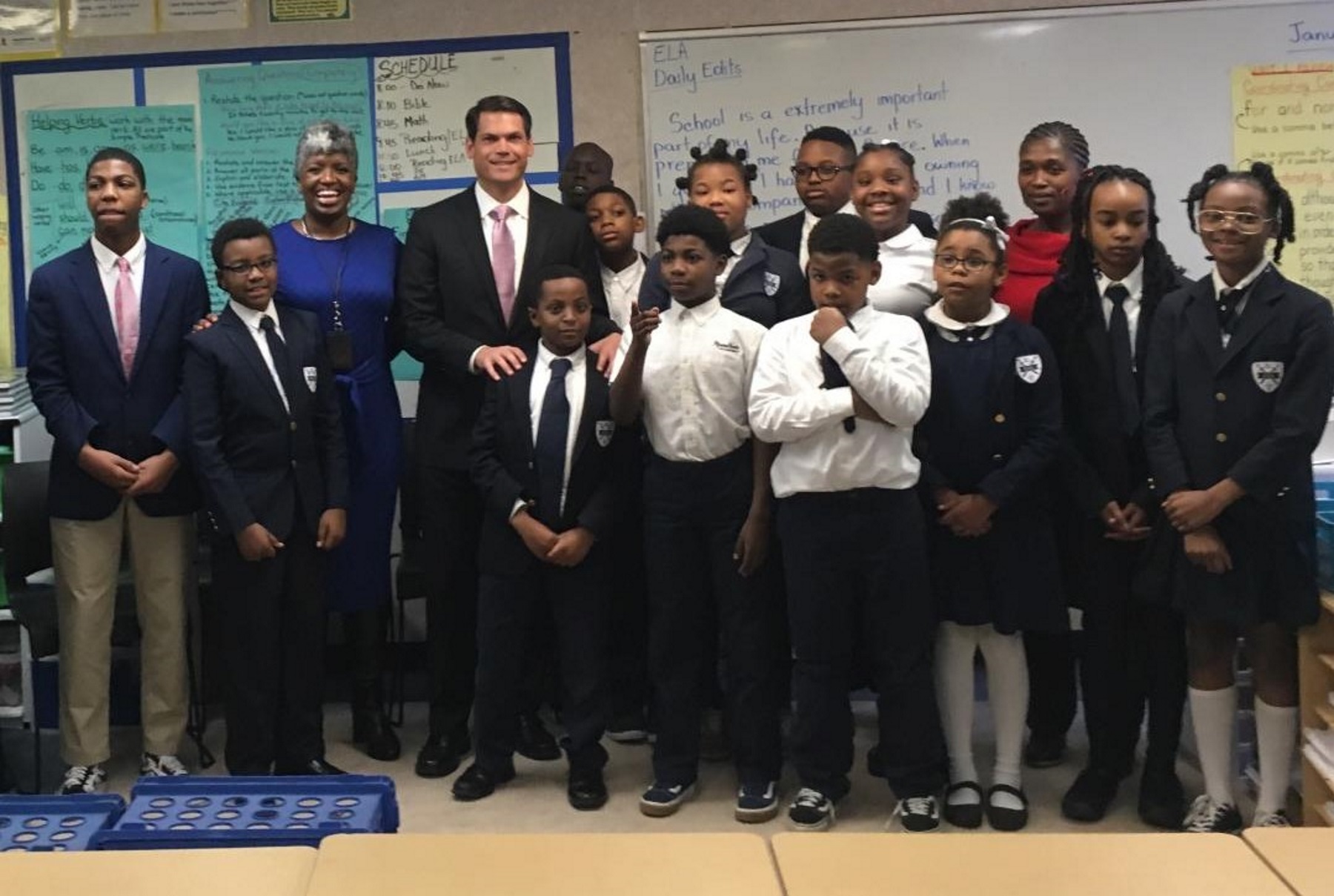Lt. Gov. Duncan Visits Atlanta Students To Commemorate National School Choice Week

Georgia Lt. Gov. Geoff Duncan poses with students at Atlanta Youth Academy to highlight National School Choice Week.
Martha Dalton / WABE
To commemorate National School Choice Week, Georgia Lt. Gov. Geoff Duncan visited Atlanta Youth Academy on Wednesday.
The private school in southeast Atlanta serves 150 students in pre-K through eighth grade. The majority of students are from low-income homes, but Peter Rooney, the school’s principal, says everyone contributes.
“Every family here pays tuition,” Rooney said. “Our median income is about $23,000 a year, and every family is paying about $160 a month.”
According to the school’s website, the cost of educating a student at AYA is $14,000 a year. Rooney said 62 percent of his students also receive scholarships through a tax credit scholarship program. Taxpayers can donate to Student Scholarship Organizations, or SSOs. They get dollar-for-dollar tax credits for their donation, up to a certain amount. The SSOs give scholarships to students enrolled in public schools to go to private ones.
Duncan said the program has been a boon to schools like AYA.
“This school is an incredible example of how that program has helped this community, and it’s also given these families the opportunity to have that buy-in that’s able to fit their budgets,” he said.
Critics say the program funnels money intended for public purposes to private schools. They say it needs stricter guidelines, like a family income cap and a requirement to track students to see how they’re doing academically.
Linda Kelly is the executive director of Georgia GOAL, an SSO that works with schools like AYA. She doesn’t think the program should cap family income.
“Why shouldn’t middle-income families benefit from this?” Kelly said. “Why should only the lowest, most-challenged families benefit from this? Because middle-income families can’t afford to pay the full-freight tuition to private schools either. And yet, their child may not be thriving in their assigned public school.”
The tax credits are capped at $100 million. The Legislature increased the amount last year from $58 million. Gov. Brian Kemp has proposed raising the cap to $200 million. Duncan didn’t commit to that amount but said he’d like the program to expand.
“This is just one of those solutions that are out there to empower communities and parents to give a child-centered education,” he said. “So, this is one of those arrows in the quiver that we can deploy across the state.”
Lawmakers haven’t introduced legislation to do that yet.
Advocates for school choice promote giving families a wide variety of educational options. That includes traditional schools, charter schools, home schooling, private schools, magnet schools and online academies.








